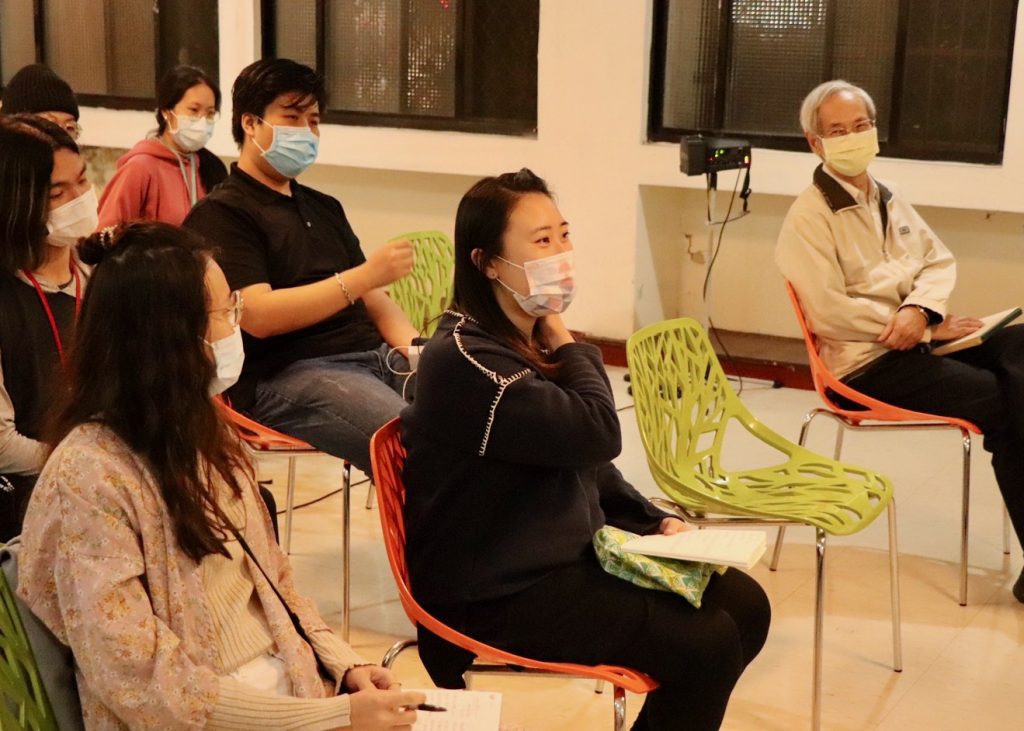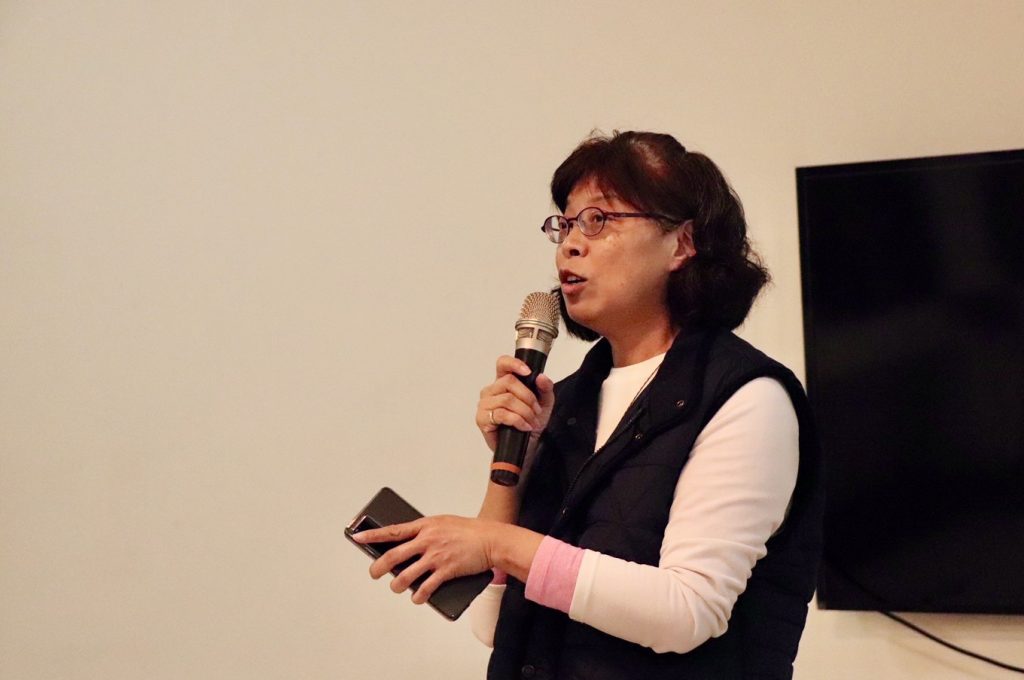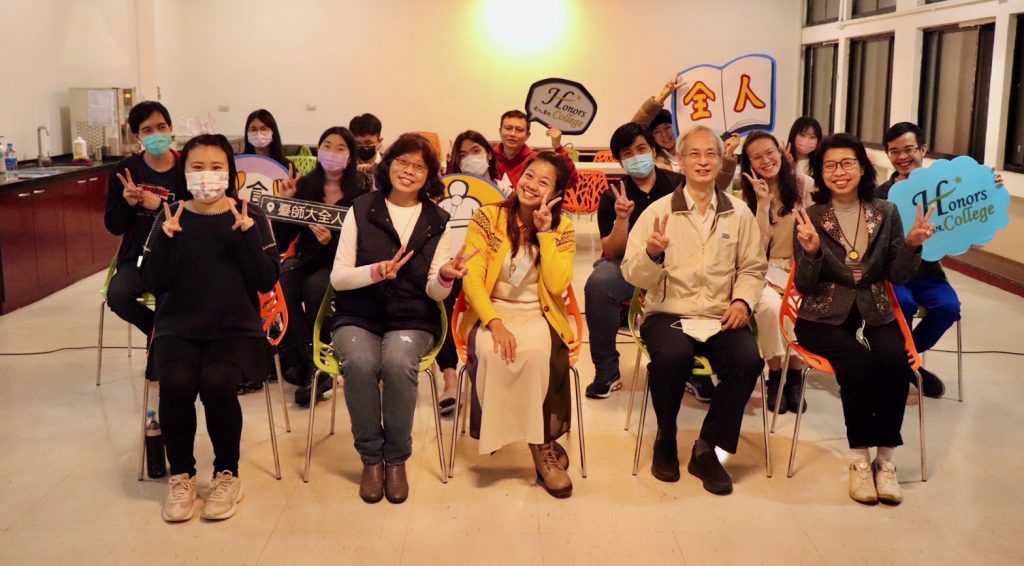Written by: Chen Hong-Jun, Student of the Academy
In recent years, the demand for student psychological counseling on campus has been steadily increasing, often leading to a supply shortage. Therefore, for this lecture, the Student Association invited Liu Xiao-Yun, Director of the Tainan Family Emotional Intelligence Development Association, as well as Cai Yi-Jing and Cai Guan-Lin, the heads of the Northern Office, to share with the Academy students how to become the masters of their own emotions. The lecture, titled "Be the Master of Your Emotions: From Emotional Management to Effective Communication," focused on how to cultivate emotional management skills and improve mental health through self-practice.
Liu Xiao-Yun explained that emotions are triggered by external environmental stimuli, and while we cannot control them, we can control how we respond to and express our emotions. She broke down the handling of negative emotions into two steps: the first step is "self-acceptance and self-dialogue" to manage one's own emotions, and the second step is "external communication and expression" to address external issues. In other words, "when we have emotions, we must first manage the emotions, then address the problem."
Step 1 of Handling Negative Emotions: Self-Acceptance and Self-Dialogue
Instructor Cai Guan-Lin shared his personal growth experience, mentioning that he grew up in a family with an authoritarian parenting style, which led him to suppress his emotions from a young age and become afraid of conflict. "I was like an ostrich burying my head in the sand, thinking the world was at peace and refusing to face the problem. But the problem was still there, and it would eventually come back to confront you, so I had no choice but to face it."
Cai Guan-Lin shared, "When I learned to face, understand, and accept, I discovered a child trembling in the wind, constantly suppressing emotions. But I allowed myself to become a loving parent and accompany that frightened child, warming and nurturing him through listening and being present. At that moment, I realized that the fragile child was no longer frozen in fear."
Liu Xiao-Yun believes that gentle self-dialogue is the key to transforming one's emotions. If we constantly criticize, demand, or belittle ourselves, emotions may be suppressed. Continuously suppressing emotions can affect daily life and even lead to health issues. Reflecting on her own experience, she recalled how she used to suppress her emotions to push through her busy life, striving to complete task after task. The long-term accumulation of stress eventually left her both physically and mentally exhausted.
Step 2 of Handling Negative Emotions: External Communication and Expression
Liu Xiao-Yun first defined the difference between "emotional expression" and "expressing emotions." Emotional expression refers to speaking with strong emotions, while expressing emotions involves using precise words to describe one’s feelings. Instructor Cai Yi-Jing believes that emotional expression may trigger the most natural defense and retaliation mechanisms in the other person. This not only hinders communication but can also cause harm.
Cai Yi-Jing believes that there is no right or wrong in the world, only different perspectives and beliefs. However, the differences between people are often the root cause of conflict. Cai Yi-Jing thinks that trying to "change others" to fulfill one's own needs is unrealistic, and the only solution is to clearly express one's feelings and needs. For someone like me, who is often eager to express opinions, clarifying my own feelings and needs should be an essential skill I urgently need to develop.
Emotional Management Takes Time – Believe It Will Get Better
Liu Xiao-Yun shared that if both parties can clearly express their needs and feelings, and continue to communicate and try, "achieving a win-win situation and mutual benefit" will no longer be a fantasy. She also hopes that when practicing emotional management, everyone will encourage themselves with "It's okay, take it slow," and believe that "I will get better and better!"
The emotional management methods discussed in this lecture may not be unfamiliar, but through the speakers' sharing of their personal experiences, it felt as though we were learning and growing emotionally alongside them. It also made me realize that while emotional management is not something that can be perfected overnight, we can seize every opportunity and, through patient practice, become better and better.




